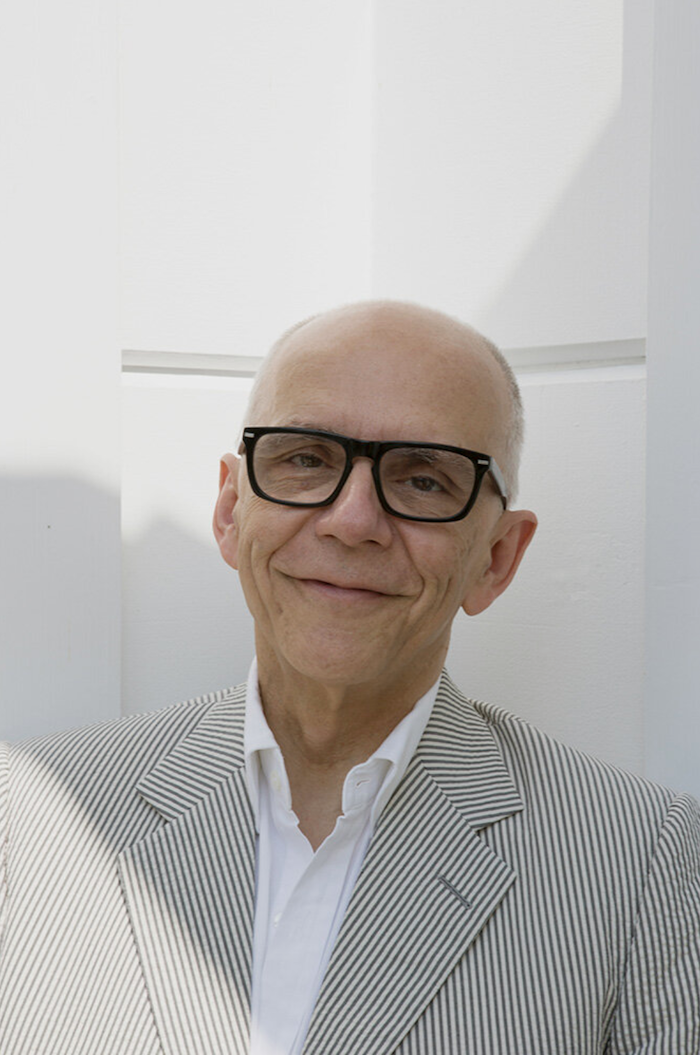With his manicured Connecticut estate, neatly tailored suits and encyclopedic knowledge of art and literature, Robert Couturier comes across as a creature from a more formal, genteel era. None of it is an affectation: Couturier was raised in Paris by his grandparents, who themselves were born in the late 19th century. Perhaps needless to say, they were a bit concerned when he announced that he was to become an architect and decorator.

“I told my grandmother, and she was a little horrified, and she said, ‘Well, you’re going to have to go through our friend’s house through the back door,’” he says. “I said, ‘No, times have changed.’ Then I caught her the next day talking to her sister, and she said, ‘Robert wants to become an architect and decorator.’ Silence. ‘And by the way, nowadays they come through the front door!’”
The manners, the taste, the clothes and the style—all old school. Couturier’s forthrightness and wicked sense of humor, on the other hand, are distinctly au courant. On this episode of The BOH Podcast, he shares with host Dennis Scully a candid account of his young life, his early career in the freewheeling New York of the Studio 54 era, and his thoughts on keeping a healthy sense of perspective in the design business.
“There is a certain form of modesty one should have to the work that we do and not take it so terribly seriously,” he says. “I’ve had people say to me, ‘I don’t love this,’ when you present them with a teacup. And you know, you don’t have to love a teacup. It’s OK. You have to love your husband, you have to love your friends, you have to love your children, but a teacup?”
Listen to the episode and check out some takeaways below. If you like what you hear, subscribe to the podcast here. This episode was sponsored by Moore & Giles Leather and the “Ask This Old House” podcast.
A SINGULARLY ELITE CLIENT
Couturier’s career has been one of constant reinvention, motivated by dramatic twists of fate. In 1981, his grandfather died and it became clear that the family fortune was not as secure as it had once been. So Couturier dug in and began working as a designer in New York, eventually landing the legendary financier Sir James Goldsmith as a client—a man who was, for the better part of a decade, his only employer. It was an epic experience, full of round-the-world trips and staggeringly beautiful projects, but basing a business around a single client was a trade-off. “I was incredibly lucky, but there’s something that’s isolating working for a person like him,” says Couturier. “Jimmy would call me and say, ‘Please come down tomorrow,’ and I’d say, ‘Well, there’s no plane,’ and he would say, ‘Well, I’ll send you my plane.’ It’s very difficult when someone sends you a 757 to say, ‘Sorry, I can’t go.’ … When the job stopped, and I had to wake up to reality, it was difficult.”
FRIENDS WITH (DESIGN) BENEFITS
Most designers issue dire warnings about working for friends: You end up working for free a lot. It’s awkward to talk about money. It can strain the friendship (or worse, break it). The list goes on. Couturier feels the opposite. “Working for friends is, for me, the key to success. Because with your friends you have to be true, and your friends are true to you,” he says. “There are no appearances to be saved, there is no pretension, and it makes it very easy to work with them, because they tell you exactly what they want—they don’t hide behind something. It makes it wonderful.”
A SHRINKING BREED
Couturier began his career in an era in which designers were the only ones who had access to trade-only products. A cavalcade of online resources has changed the equation, and he sees the role of the ultra-high-end designer becoming more and more niche. “We are increasingly a luxury item,” he says. “We have become dinosaurs to a degree—we are sort of a dying breed. Or, if not a dying breed, a shrinking breed. The era of hundreds of decorators going to the D&D, jamming the elevators, is gone. When you go to the D&D today you’re basically alone.”




























